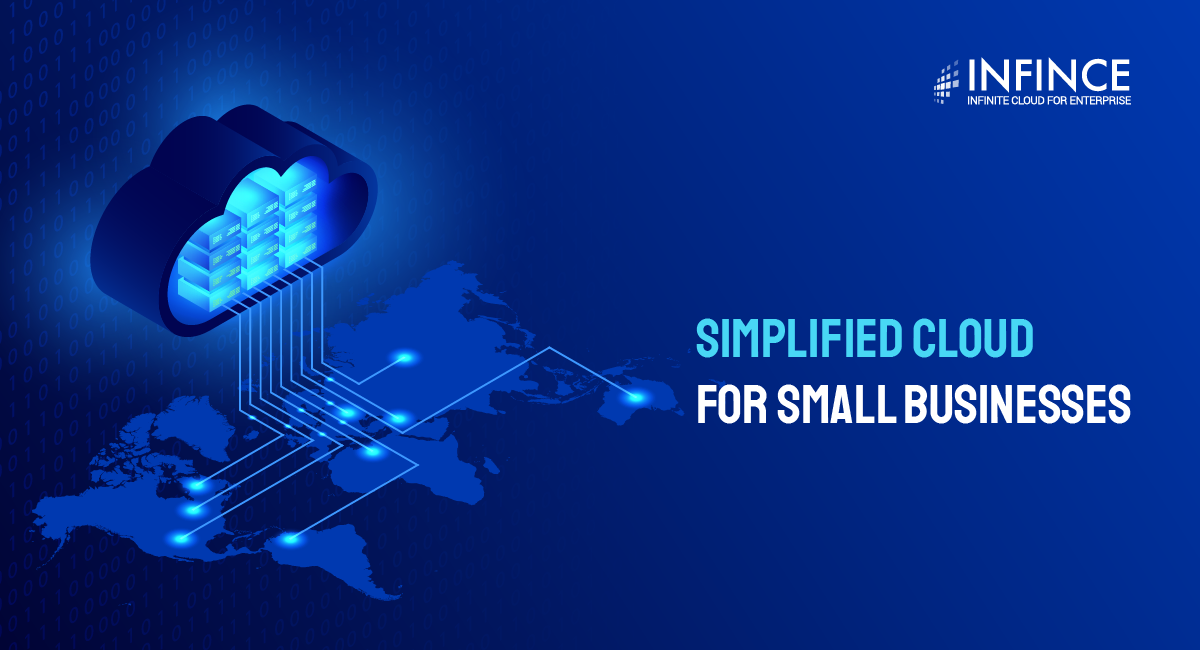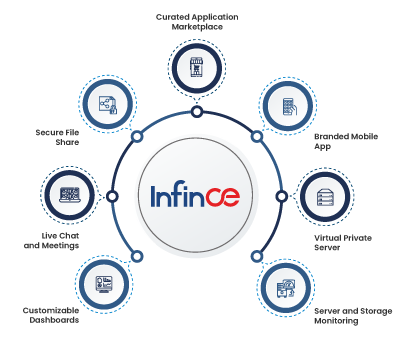Are You Moving to Enterprise Cloud? Here are 10 Statistics You Need to Know!
Cloud computing is a vital game-changer for businesses looking to make the most of advanced technologies. Enterprise cloud solutions help companies become more cost-efficient, innovative, and productive. Companies seeking to transform their business operations in these challenging times consider enterprise cloud services as the most feasible and viable option.
With that, let’s cut to the chase first.
What is Enterprise Cloud?
Enterprise cloud is a computing model that allows you to access virtualized resources from a private or public cloud services provider. It includes processing power, servers, data storage, networking infrastructure, and other virtualization capabilities. Enterprise cloud providers bill their customers on a pay-per-use basis, but you can also go for subscription-based models to better control the expenses. By migrating to enterprise cloud solutions, you can have improved flexibility and network security while reducing IT infrastructure costs.
Read more: 5 Ways an Integrated Cloud Platform is Beneficial for Your Small Business
Enterprise cloud services offer robust and scalable IT solutions to help you become more resilient by having scalable access to data storage, CPU memory, and processing power. On top of that, you do not have to maintain the network and data center either. Enterprise cloud platforms like InfinCE offer private IT infrastructure services to take care of your network and data center management.
10 Stats You Need to Know About Enterprise Cloud
Here are ten statistics that prove how enterprise cloud is transforming businesses around the world.
1. Business drivers
51% of the respondents of IDG Cloud Computing Survey 2020 cite the following reasons as the primary business drivers for enterprise cloud adoption:
- cost management
- reporting and optimization
- performance monitoring and management
44% of respondents mentioned security, governance, and policy compliance as the key reasons to adopt enterprise cloud.
2. Enterprise cloud strategy
81% of organizations that adopt enterprise cloud go with a multi-cloud strategy to take full advantage of the technology. This way, they get to enjoy the best of both public and private cloud computing.
3. Industry adoption
Financial services, one of the most regulated industries today, reports the highest adoption rates of private and public cloud. Understandably, reliable security and IT resources scalability are the driving factors for that. According to a survey by Celent, over 33% of respondents from the financial services industry believe that it would only take 1-3 years to shift 75% of their workloads to the cloud.
Read more: 3 Strong Reasons for Your Business to Embrace Cloud-based IT Services
4. Market leaders
According to the Flexera 2020 State of the Cloud Report, enterprise cloud partners of Microsoft Azure saw a significant increase in the adoption rates from 45% to 52% in 2019, while it was 67% for AWS in the same period.
5. Growth rate
In 2020, 67% of enterprise infrastructure was moved to the cloud. IDC reports that by the end of 2021, 80% of enterprises will be equipped to move to the cloud. As a result, cloud-centric digital infrastructure and application services will grow twice as fast as before the pandemic.
Read more: A Guide to Effective Cloud Migration
6. Impact on business functions
As per a recent report by Forbes, 74% of Chief Financial Officers (CFOs) believe that cloud computing will have the most significant impact on their business. Other technologies that would substantially impact financial enterprises include the Internet of Things, Artificial Intelligence, and Virtual Reality.
7. Everyday usage
On average, an employee actively uses 36 cloud-based services at work daily, sometimes even without knowing that they are accessing multiple enterprise cloud solutions. This mainly includes collaboration apps, file-sharing services, and content management tools. For example, tools like Gmail, One Drive, Office apps, and so on.
8. Better results
According to Salesforce, around 94% of businesses that have migrated to enterprise cloud reported significant improvements in their online data security standards after switching to the cloud. At the same time, 91% said it made meeting the government compliance requirements much simpler.
9. Expectations
IBM reports that around 41% of businesses already have a multi-cloud management strategy in place. It is expected that 98% of enterprises will migrate to hybrid cloud computing by the end of 2021 to manage the running workload better.
10. Multi-cloud strategy
According to Flexera, 66% of enterprise cloud customers from 19 different industries believe that adopting a multi-cloud strategy is vital to reducing costs. At the same time, it is also crucial to develop a more predictable monthly operating expense model.
Read more: Why Should Your Business Invest in Cloud Native Digital Technology?
What Makes Enterprise Cloud a Sensible Choice?
1. Cost-saving
One of the key factors driving enterprise cloud adoption is that it allows businesses to pay only for the resources they use. Even with subscription models, you can have a predictable monthly expenditure while having the option to scale the resources as and when required. Moreover, there are zero costs for infrastructure maintenance or managing the servers or data center.
2. Improved security
Enterprise cloud offers multiple layers of network-wide and system-wide security measures to keep your sensitive business data safe. Enterprise cloud security helps thwart cyber attackers trying to infringe your company data and customer information.
3. Quick disaster recovery
No one can predict a disaster – but for businesses, losing data due to a disaster can significantly affect their reputation, not to mention the loss of revenue. As developing a solid disaster recovery solution can be very expensive for companies, moving to private or public enterprise cloud services provides them a reliable option to sustain business resiliency.
4. Drive innovation
Enterprise cloud allows you to scale the IT resources up or down as required dynamically. Thus, you can minimize the upfront capital investment needed to launch a new product line or test a new service. As the cost barrier is out, enterprise cloud services facilitate innovation and grow your business to new heights.
5. Easy data access
Cloud computing and desktop virtualization often go hand-in-hand when it comes to business uses. With that, you can ensure that your employees have access to the required data and files on the go, no matter which device they are using. This improves the overall productivity and profitability of your business.
Download White Paper: The Business Value of InfinCE for Business Owners and Employees
InfinCE Enterprise Cloud Solution
InfinCE is an all-in-one enterprise cloud platform that offers a new way for businesses to manage IT. With InfinCE, you can get all the software, cloud servers, and technical services to run your business from anywhere – all in one place. Hosted on a secure private cloud, InfinCE digital workplace platform empowers your employees to collaborate and work from anywhere seamlessly. Contact us to learn more about InfinCE enterprise cloud.







